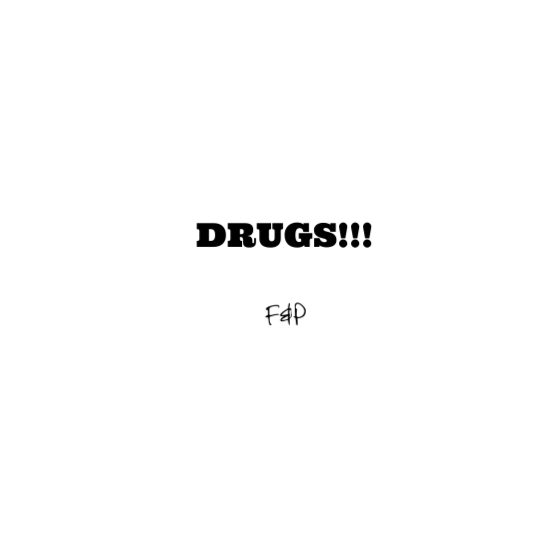Black Sheep Albums: Neil Young's Trans
"Where did you get it?
"From some guy."
"How much did you pay for it?"
"Just a few dollars."
"Why did you ever decide you wanted it?"
"It sounded interesting!"
The kava was flowing in my veins. The camp fire danced before my eyes. Robots barked and chirped from some puny sound system to the beat of programmed drums. And that series of indignant, accusative questions and honest, yet inadequete replies continued.
This exchange was not between a mother and her wayward teenage child, chiding him/her for purchasing the newest, hippest street drug. This was my friend being grilled by his girlfriend about purchasing Neil Young's Trans. I had seen few albums evoke such a visceral response from anyone. It reminded me a lot of when I'd visit the Exclusive Company as a 6th grader and try to keep such offenisve items as Megadeth's So Far, So Good...So What! from my parents' prying eyes, until I could get past the register.
How could the humble Canadian folk/rock/country musician cause such disharmony? It could have had something to do with the cyborgs trying to speak through the iPhone. The display said it was a Neil Young album, but there was precious little evidence to confirm this.
One would have to suppose that by 1982, when Neil Young supposedly recorded this album, he had grown sick of playing his Canadian Nerf rock. Mind you, that was two years before Skynet sent the machines back to kill the mother of humanity's salvation, so robots were a benign presence at this point. Clearly, Neil made a deal wth them.
Vocorders, synthesizers and drum machines abound on Trans, yet we are treated with three standard issue Neil Young rockers, in the form of "Little Thing Called Love" and "Like an Inca," not to mention the soft-boiled ballad "Hold on to Your Love." There is nothing wrong with these, but they don't leave nearly the impression that the other six do.
The casual listener will get through "Little Thing Called Love" without batting an eye, believing that this is just another velvety Canadian album. Even when the digital bass drum signals the arrival of the machines in "Computer Age," they'll continue listening. Waves of synth come rolling in, but hey, this is 1982 after all, so nothing to worry about. Then...vocorder.
We're not talking Chromeo vocorder, which is used to empasize certain parts, or the copious auto tuning of Rebecca Black's "Friday." Neil goes for total integration here. It's like he's fused himself to the mechanized songsters of humanity's doom, and his pleading voice is calling out to us one last time. He breaks out of the matrix in several places, giving you a feeling that his humanity hasn't been totally lost, sometimes with the digitized voices popping up alongside. Then the metal masters take over and try to imitate Neil's voice.
The use of vocorder is important, as it renders the lyrics nearly incomprehensible, while simultaneously emphaisizing the vocal melodies. On later listens, this doesn't come across as bizarre and menacing, but cold and smooth, as your mind allows the songs to simply flow without focusing on individual words. Trans becomes a seamless flow of pure, liquid consciousness.
Though "Computer Age" is an ultimately disturbing first listen, it's a driving song that pushes you forward, and showcases a mastery of the technology (or perhaps it's the technology's mastery of Neil Young...). The songs "Computer Cowboy (AKA Syscrusher)" and "We R In Control" are where things get goofy, and don't succeed as songs, mechanized or not. The lyrics tell tales of justified technophobia, whereas the music bounces along. A disembodied, lone guitar riff spirals aimlessly on "Computer Cowboy," like transmissions of a malfunctioning satellite beyond the Kuiper Belt.
The greatest songs on here are the touching, ballad-esque "Transformer Man," and the cybernetic stomp of "Sample And Hold." "Tranformer Man" plods along with falsetto robot vocals, and more lamentations about the impending computer takeover. "Sample and Hold" tells a little tale of custom ordering your own designer cyborg woman. Blonde, blue eyed, even disposition, 110 pounds, not angry, and not lonely. Sure, I'd go for that, but I'd prefer my females to be far more voluptuous, and with big noses, but whatever. I could definitely get down and disco grind at the Tech Noir club to this song. That is, until that goddamn cybernetic organism shows up and doesn't pay the entry fee.
Trans takes a rightful place alongside Kiss' The Elder and Judas Priest's Turbo, but closer to Turbo in the sense that it is a successful melding of man and machine, a true hybrid, or rather, the transitional phase before complete mechanization. And as a rock album, it rocks, although it would be best to experience this album in an altered state the first time, so as to create the greatest sense of shock. Subsequent listenings in a sober state will reveal Trans to be not just a unique time capsule from the early 80's, but an intriguing, and satisfying listen.







